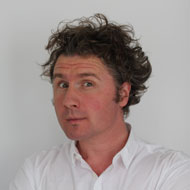‘Bad science’ exposed at BVA Congress

Dr Goldacre trained in medicine at Oxford and London, before becoming a household name through his weekly Guardian column, Bad Science.
Scientific claims made by journalists, government reports and pharmaceutical corporations were the subject of this years’ Wooldridge Memorial Lecture, held at BVA Congress.
Speaking today (17 November) at ExCel London, bestselling author and medical doctor Ben Goldacre drew on his experience to highlight how ‘quacks’ and ‘charlatans’ misuse evidence - and the placebo effect - to cheat or fool the public.
Dr Goldacre gave several examples of people misusing statistics, from misleading graphs and surveys in media reports, to bias and design flaws in systematic data reviews. He stressed that the problem with systematic reviews is that the results of clinical trials are routinely withheld from doctors, researchers and patients.
"This means that what you see in the systematic review, even if it is perfectly done, and even if you check that the individual trials themselves are perfectly done, they are likely to exaggerate the benefits of treatment," he said. Scientists cherry-pick the positive trials and quote only those.
Dr Goldacre's extremely enthusiastic lecture also explored how botched statistics and bad surveys have tricked many people into thinking that homeopathic remedies work.
The Wooldridge Memorial Lecture is posthumously named after veterinary politician and researcher Dr W R Wooldridge. The lecture was first delivered at BVA Congress in 1967 by Professor Lord Stamp and has since included the Princess Royal (1992), the president of the Animal Health Trust; Sir Robert May and bestselling author Dr John Bradshaw.
Dr Goldacre trained in medicine at Oxford and London, before becoming a household name through his weekly Guardian column, Bad Science. The accompanying book, Bad Science, has sold more than 500,000 copies worldwide, and is available in 22 countries. He currently works as an academic in epidemiology.



 The latest
The latest